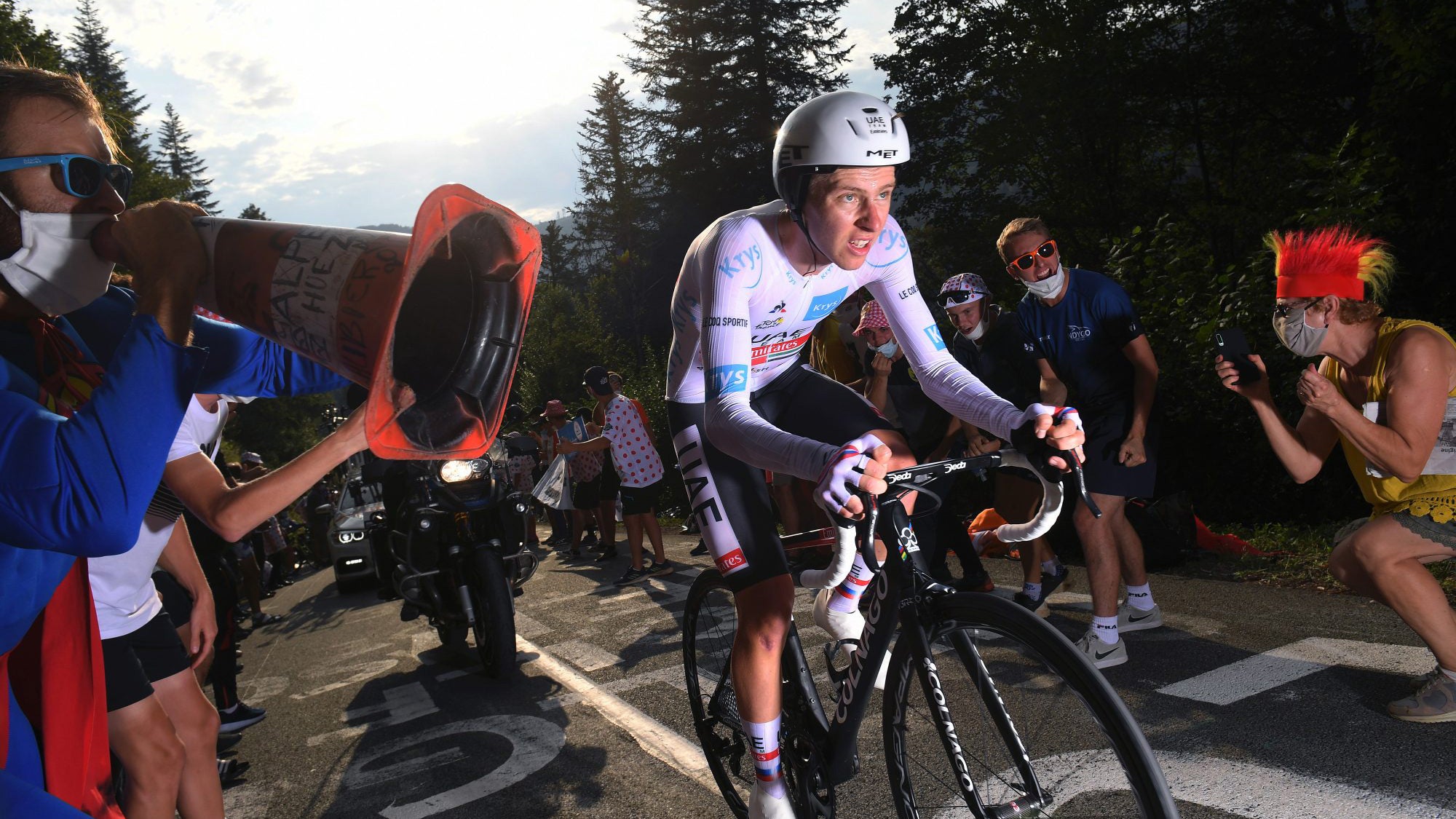Pogačar's coach on Tour de France preparations: 'He was so fit in May I told him to have a week off'

Pogacar's 2020 time trial turnaround was one of the most dramatic results in Tour history. (Photo: Tim de Waele/Getty Images)
What does it take to win the Tour de France? Ask Tadej Pogačar‘s coach.
Pogačar’s physiologist and performance director Íñigo San Millan revealed in an interview with Eurosport the perfect recipe of ingredients that built Pogačar’s remarkable victory in France, describing both a maturity beyond his years and a nerve of steel.
“I met him at the end of 2018; my arrival in the team [UAE-Team Emirates] coincides with his signing for 2019,” San Millan said Monday. “At that moment I realized what he was, which is exactly what you see of him on television: a boy with physiological parameters impressive coupled with mental qualities reminiscent of [five-time Tour champion Miguel] Indurain.”
Having taken third at the 2019 Vuelta a España in what was his debut grand tour, Pogačar went on to capture the yellow jersey last week in his second-ever three-week race. The young Slovenian’s success during both the Vuelta and the Tour was founded in his ability to stay strong while the competition wilted around him. At the Vuelta, he took three stage wins all in the back-half of the race, and he repeated the feat in France earlier this month, taking stage 9, 15, and 20.
San Millan, a Spanish physiologist based at the University of Colorado School of Medicine, and who has worked with Team Garmin, says Pogačar’s huge capacity for recovery is in the blood. Having developed a test to assess capacity for recovery and resilience to fatigue by analyzing an individual’s mitochondrial function, use of carbohydrates, fats, and proteins, San Millan was confident in sending such a young rider into the hardest races in the world.
“In those [metabolic] measurements Tadej, compared to already very good cyclists, is on another level,” San Millan said. “For this reason, we were not afraid to take him to La Vuelta so young, because with that fantastic capacity for recovery there was no risk of melting him.”
The only question mark San Millan had was around Pogačar’s ability to handle pressure in his debut seasons in the WorldTour. The young Slovenian firmly answered those by bouncing back from losing time on stage 18 of the Vuelta to take a stunning victory two days later atop Plataforma de Gredos, boosting him onto the podium in the process.
Pogačar’s nerve of steel was no better illustrated than in his yellow jersey-winning time trial to the Planche des Belles Filles this weekend. “You could see the image on the screen before the time trial how relaxed he was,” San Millan said. “He never loses his calm.”
Pogačar’s mental and physical attributes, coupled with an innate understanding of his body, unlocked the stunning turnaround in Sunday’s time trial, which saw the then-21-year old overturn and bury a near-one minute deficit on GC-leading rival Roglič.
“In a grand tour final time trial, it matters a lot that you have arrived in full form, and on your recovery capacity – and in those Tadej is outstanding,” San Millan said. “We did not need a power meter on either of the two bikes. We told him full throttle, because he knows how to calculate well going full throttle for an hour either on the climbing bike or on the normal bike, which is around 415 watts for his 65 kilograms.”
Fair fortune and good planning also had a role to play in Pogačar’s Tour de France success. Having never trained at altitude prior to his third-place finish at the Vuelta last September, the youngster spent time in the thin air of the Sierra Nevada through winter and based his training at the Italian ski resort of Sestriere prior to the season restarting in summer.
And while the majority of the pro peloton endured months of confinement in Colombia, Spain, France, and Italy when the COVID-19 pandemic struck in March, Pogačar decamped from his residence in Monaco to return to the more relaxed requirements of Slovenia.
By May, Pogačar was in Tour-winning form.
“In fact in May he was already so fit, with some data of watts per kilo in climbs similar to the ones we wanted him to have on the Tour, I even had to ask him for a week without touching the bike,” San Millan said. “And he did it.”